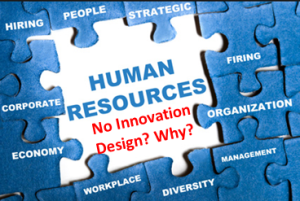 The management of human resource (HRM) needs to be replaced with the management of human creativity and ingenuity, as this is the triggering point to innovation success and delivering longer-term sustaining success.
The management of human resource (HRM) needs to be replaced with the management of human creativity and ingenuity, as this is the triggering point to innovation success and delivering longer-term sustaining success.
The critical role of innovation is without question needed for the future growth, wealth creation and organisations potential survival.
Who is to drive the human change required here within our business organisations?
I believe within our human resource groups they must provide the people solution to building innovation capacity, they should contribute to providing lasting design impact and central engagement role in building innovation into the core fabric of the organisation. They become central to helping deliver, distinctive, radical, even game-changing innovation and that needs clear, distinct capabilities, capacities and competencies to be design into and innovation management system.
Continue reading “The role Human Resources can play in Innovation and its needed Design”
